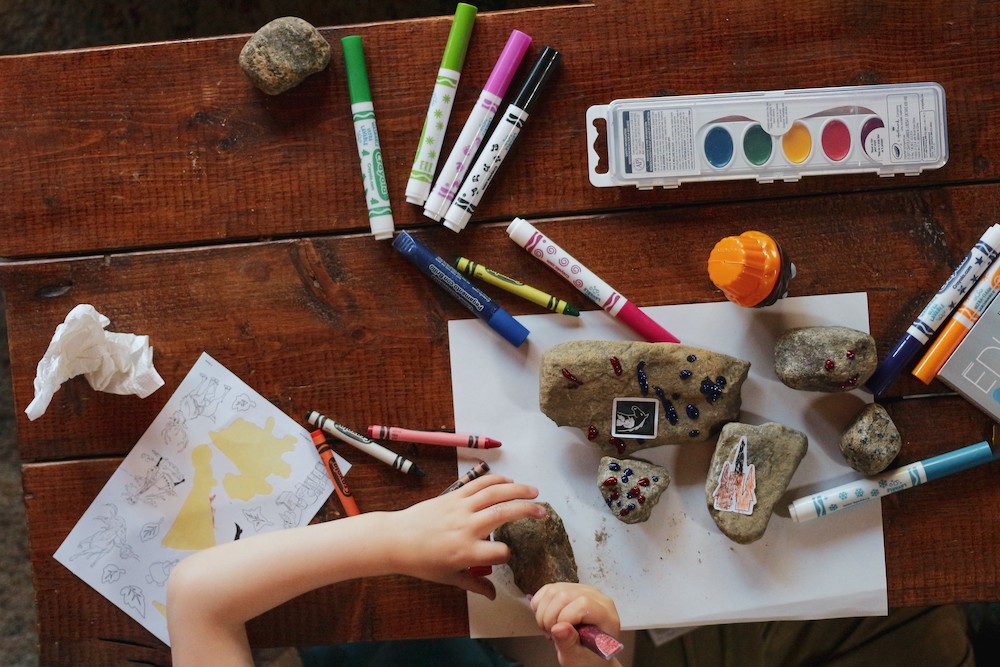A Parent’s Guide to Encouraging Independent Play

Do you have trouble working at home because your kids cling to you? Do they complain that they’re bored when you try to limit TV time?
Teaching your children to entertain themselves could be the solution. Sure, you’ll enjoy more peace and productivity. More importantly, your kids will develop important life skills while they have fun playing on their own.
This kind of transformation will require some practice. Follow this guide to encouraging independent play.
Benefits of Independent Play:
1. Build confidence. Let your child tackle manageable challenges and try to overcome obstacles on their own. With each new accomplishment, they’ll learn to believe in themselves and their abilities.
2. Support learning. TV can be educational, but active learning has its advantages. Children tend to pay attention longer, retain more information, and strengthen their cognitive skills.
3. Inspire creativity. Imaginative play is fundamental to your child’s development. It will help them to solve problems, tolerate uncertainty, and collaborate with others.
4. Reduce stress. Your child needs quiet time too. Independent play gives your child a chance to tap into their inner resources while you take care of other responsibilities.
Encouraging Independent Play:
1. Progress gradually. Introduce solo play a little at a time. Depending on their age and personality, your child might start with 10-minute sessions and work their way up.
2. Remain accessible. Your child will probably be more cooperative if you stay close by. Check in on them frequently or let them know when you’re available for interruptions.
3. Minimize directions. Let your child take the lead instead of telling them how to play. Maybe they want to treat their dolls to backyard barbecues instead of tea parties.
4. Make a list. On the other hand, your child might appreciate some ideas. Brainstorm things they can do on their own like playing cards and jumping rope.
5. Design a safe space. Create a childproof play area where kids can explore freely. Otherwise, you might cramp their style.
6. Provide appropriate toys. To avoid frustration, pick games and toys that are suited to your child’s age and abilities. It’s okay for them to be a little challenging.
7. Avoid overstimulation. Children can feel overwhelmed if they have too many toys to choose from.Rotate the collection to keep things interesting. See what happens when they take a break from electronic toys to make up their own uses for cardboard boxes.
8. Offer rewards. Give your child credit for making an effort. Praise them for playing on their own. Share a special activity together after they’ve been amusing themselves for a while.
9. Maximize quality time. It may also help to pay extra attention to your child before you leave them on their own. Read a bedtime story together and then give them the book to look through by themselves before they fall asleep.
10. Create daily routines. Children thrive on consistency and structure. Make independent play a part of your daily activities.They’ll get used to managing on their own when you’re attending video conference calls or doing the laundry.
11. Be flexible. On the other hand, there will be times when you’ll need to adapt. Most children go through stages when they need more attention and comfort temporarily. It often happens during stressful events or major changes like a new baby or going back to school in the fall.
12. Schedule playdates. Socializing with other kids instead of parents can also count as independent play. Help your child to make friends and play well with others.
You can balance spending time with your kids and giving them room to rely on themselves. Independent play makes parenting easier and more effective. You gain more time for yourself, and your children learn how to become happy and resilient adults.
CLICK HERE to Explore Our Free Online Courses


Responses